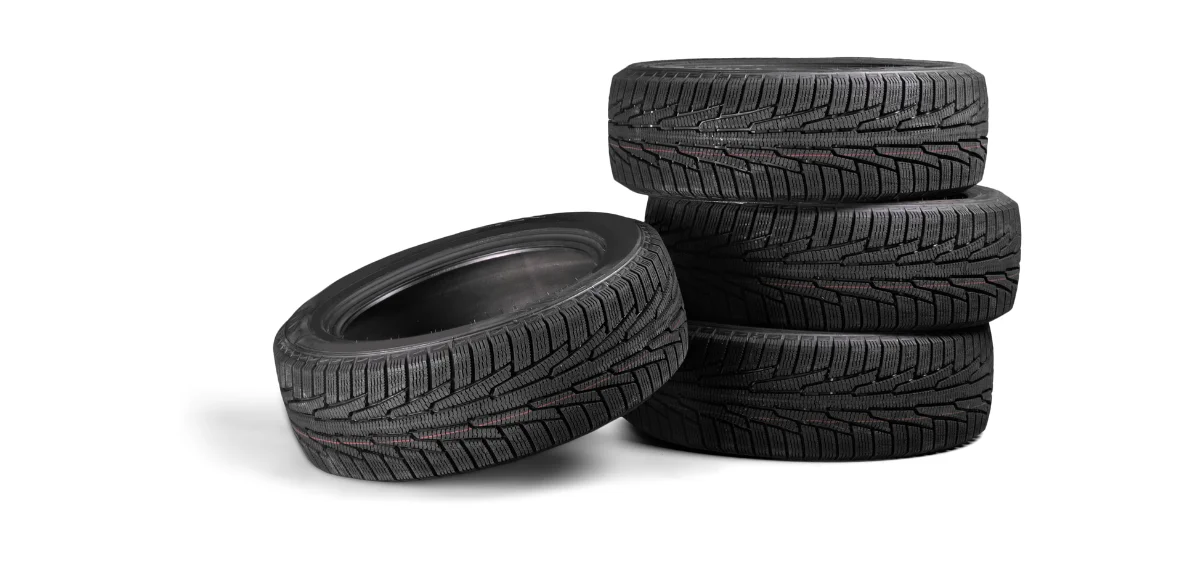
Tooth pain isn’t considered by many to be a serious problem. But it can quickly turn into one if the pain becomes an infection. A tooth infection can kill you if it starts spreading to the brain, heart, neck, and other parts. In the absence of medical intervention, it’s possible to die within a few days.
The infection occurs when the bacteria in your mouth reach the pulp or the soft tissues of your mouth. Then, it forms an abscess or pus around the tooth. It is critical to get treated for abscesses as neglecting treatment can cause serious complications. Fortunately, today, with advances in dental medicine, it has become easier to treat the condition and stop it from worsening.
Keep reading to find out all about tooth infection and when it becomes fatal.
Must Read: What Happens If You Stop Using Fluoride Toothpaste?
What Is a Tooth Infection?
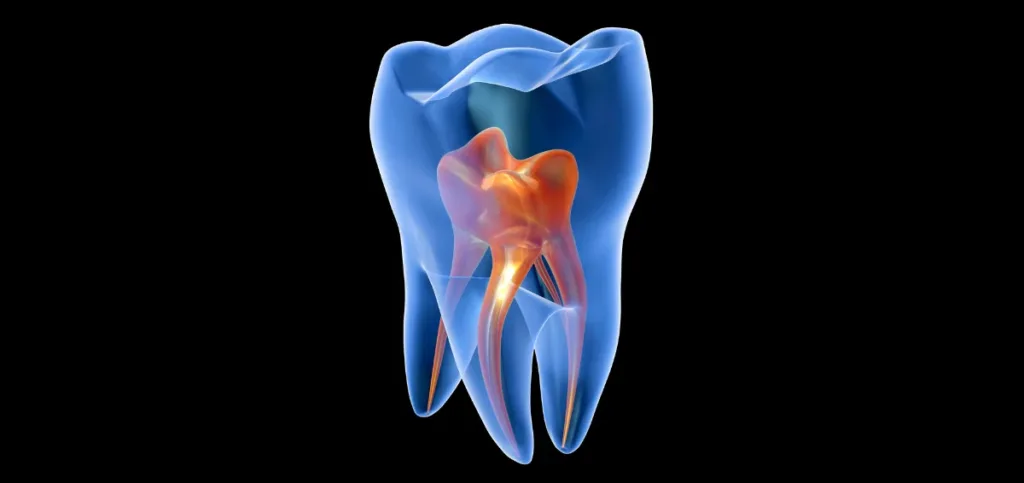
Tooth infection is characterized by extremely painful and sensitive teeth. The teeth turn sensitive when exposed to hot or cold temperatures. You also experience sensitivity while chewing or biting. Tooth infection is the result of tooth decay. It occurs when the tooth enamel, the softer inner layer of the teeth that protects it from bacteria and acids, is destroyed by plaque.
Plaque is a sticky film of bacteria on the teeth. Proper oral hygiene practices like regular brushing and routine dental cleanings are essential to remove plaque. Tooth infection occurs when the bacteria enter the inner part of your mouth, that is, the soft tissues. The tooth enamel develops cracks, and your teeth are at risk of disease.
How Do You Know If a Teeth Infection is Killing You?
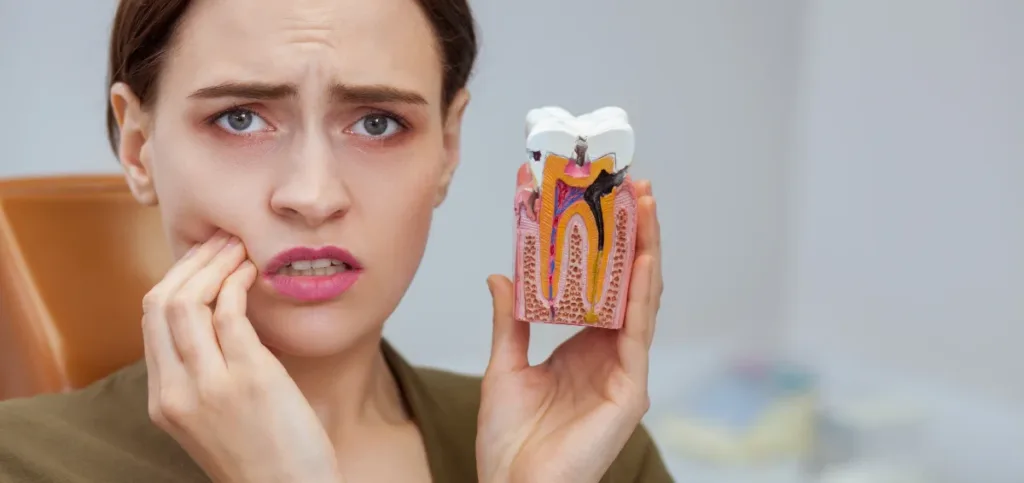
Tooth infection has the potential to kill when tooth pain turns into an infection and forms an abscess. The buildup of pus and tissue swelling around the infected tooth causes extreme toothache. In general, a fatal tooth infection has the following symptoms.
- Severe, throbbing toothache that spreads to other parts like your neck, ear, and jawbone. This toothache is persistent.
- Discomfort or pain when biting or chewing
- Discomfort or pain when coming into contact with cold or hot temperatures
- Difficulty breathing or swallowing. This is caused by swallowing in your cheek, neck, or face.
- Fever and headache
- Nausea or vomiting
- Rapid heart rate
- Difficulty breathing
- Bad breath
- Swollen and tender lymph nodes in your neck or under your jaw
- A sudden rush of a metallic tasting and smelling liquid in your mouth
Can Your Body Fight off a Teeth Infection?
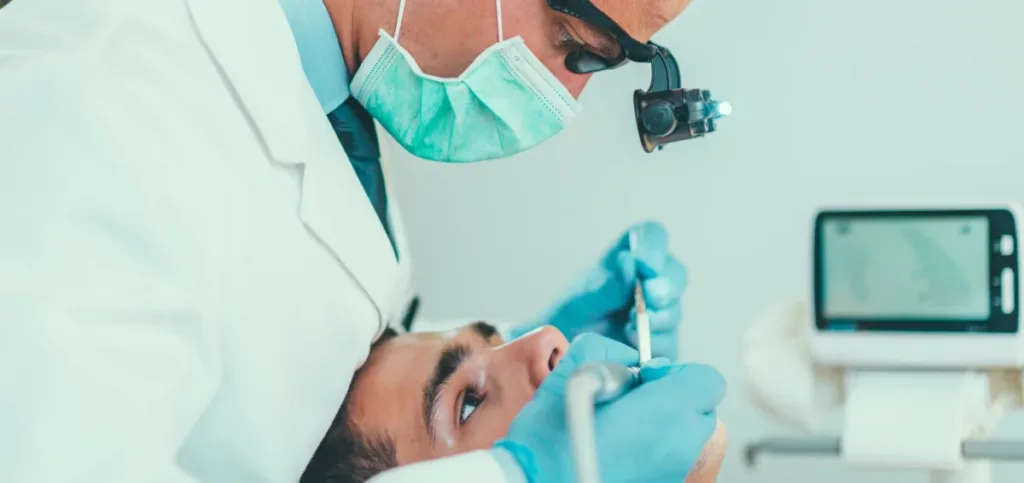
No, your body cannot fight off a tooth infection on its own. If the infection kills the soft tissues in your mouth, you’ll not experience the extreme pain associated with tooth infection. However, it does not mean that it is over. The bacteria will keep spreading and cause damage to the surrounding tissues.
So, it is advised to see a dentist even if you stop experiencing pain. Here are the 4 ways in which dentists treat tooth infections.
- Drain the abscess: The first step is to drain the abscess. For this, the dentist makes a tiny incision into the abscess. It allows the pus to drain out. Then, they use sea salt water to clean the area. Sometimes, they might use a rubber drain to keep the infected area open for drainage.
- Perform a root canal: The second step is doing the rot canal procedure to eliminate the infection. This is done by drilling down your tooth and removing the pulp or the soft tissue. Then, the abscess is drained. After that, the dentist fills and seals the pulp chamber of the tooth and root canals. Sometimes, the dentist may put a crown or a cap on the tooth to make it more resilient.
- Extract the infected tooth: Extraction of the infected tooth is done if it cannot be saved. After pulling the tooth out, the dentist drains the abscess to eliminate the infection.
- Antibiotics prescription: Antibiotics are prescribed if the infection has spread to other areas like the jaw. Antibiotics ensure that the infection isn’t spread further.
Read Also: How to Cure Gum Disease Without a Dentist?
Can Home Remedies Help With Tooth Infection?

Tooth infection is a serious condition that needs the intervention of a dental professional. Treating it with home remedies won’t help permanently get rid of the infection. However, certain home remedies can relieve the pain due to the condition. Here are some things you can try:
- Saltwater rinse: Saltwater rinse can provide relief from the pain for some time. Mix half a teaspoon of salt with half a cup of warm water and rinse your mouth with it by swishing it for about two minutes. Then, spit it out.
- Oregano essential oil treatment: Oregano essential oil is anti-inflammatory and reduces the swelling of tooth infections. Dilute a few drops of this oil with one ounce of carrier oil and put the mixture into a cotton ball. Hold this ball to the infection area for about two minutes. Leave the mixture on for at least 10 minutes, and then rinse your mouth.
- Use fenugreek mixture: Fenugreek helps heal wounds. Make fenugreek tea by boiling a cup of water with a teaspoon of ground fenugreek. When the mixture cools, apply it to the infected area with a cotton ball.
- Cold compress: Cold compress is effective in reducing the swelling and pain of a tooth infection. Place ice cubes in a towel and hold it against your skin in close proximity to the infected area. Use a cold compress for 15 minutes. Repeat it throughout the day whenever you need pain relief.
How to Avoid Tooth Infection?
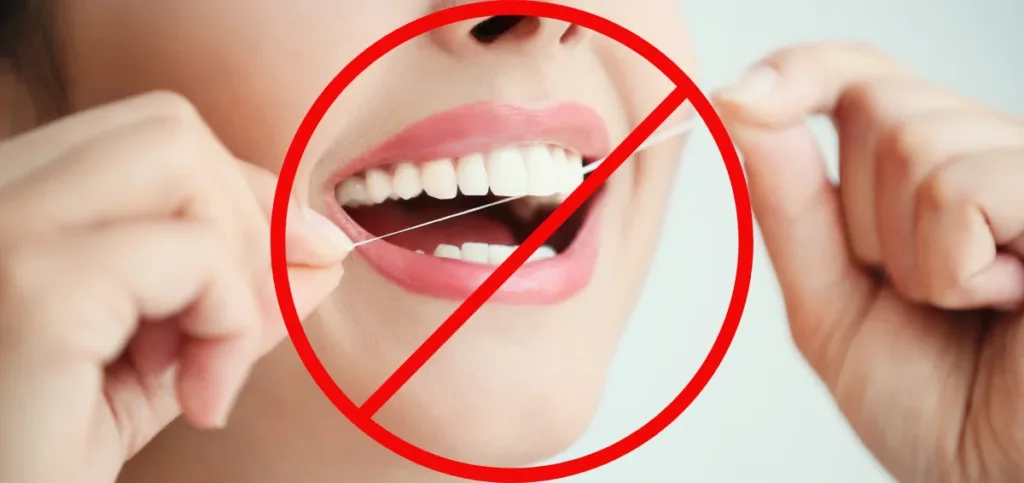
The best protection against tooth infection is not to get it in the first place. Thankfully, you can avoid tooth infections by following certain simple oral hygiene practices.
- Brush and floss regularly: Brushing twice and flossing once daily effectively removes stuck food particles. This is basic advice, but lays the foundation for healthy teeth and gums.
- See a dentist every six months: A professional dental practitioner can easily spot things in your mouth that you can’t. This helps with the timely detection and remediation of dental issues.
- Limit your sugar intake: feeds bacteria in your teeth. These bacteria can destroy teeth and cause decay, which can lead to tooth infections. So, limit your intake of sweets and ensure you properly rinse your mouth after every such meal.
- Replace your toothbrush every six months: Toothbrush holders have bacteria accumulated on them. If they aren’t cleaned regularly, bacteria may spread to the bristles and infect them. We recommend cleaning your toothbrush holder as well as replacing your toothbrush every three months.
Summing Up
It can take many months for a tooth infection to get to the stage where it can kill you. You can easily avoid reaching that stage by checking your symptoms and getting help. It is also important to follow oral hygiene best practices to reduce the likelihood of developing an infection. Consult a dental professional every six months to ensure your teeth and gums are in the best shape.





